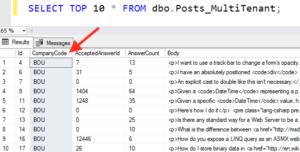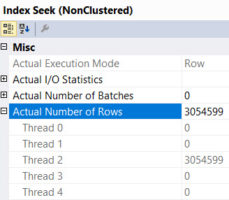Tales From Overindexing: Too Many One Column Indexes
8 Comments
Master Plan Sometimes you see a query, and it’s hitting one table, and then the query plan looks like a vase full of spaghetti. Usually, there’s a view involved. Usually. Sometimes, there’s just really weird indexing. Here’s A Thing, Look At It Promises This is a query against one table. No views, no functions, no…
Read More














